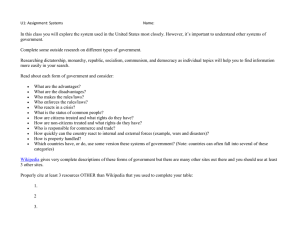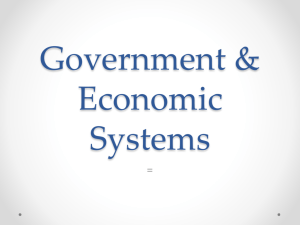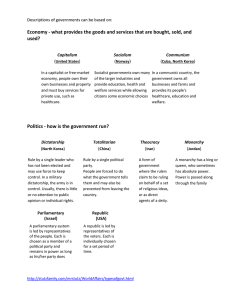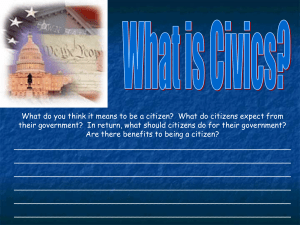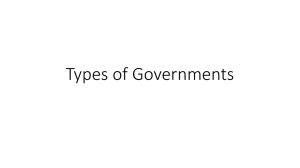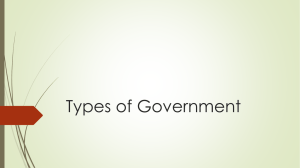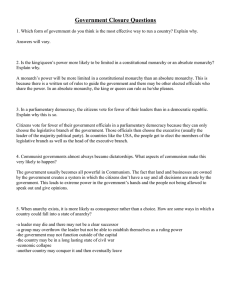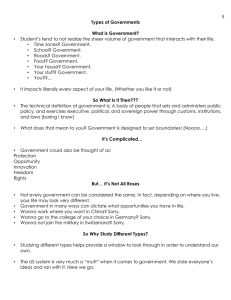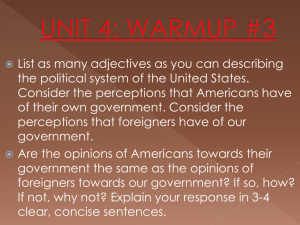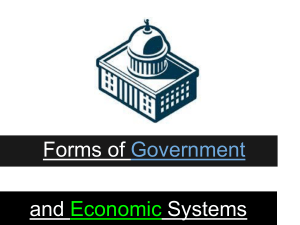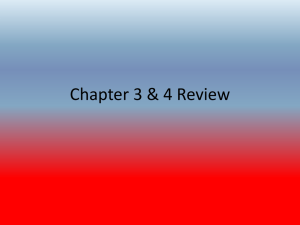Types of Government and Economic Systems
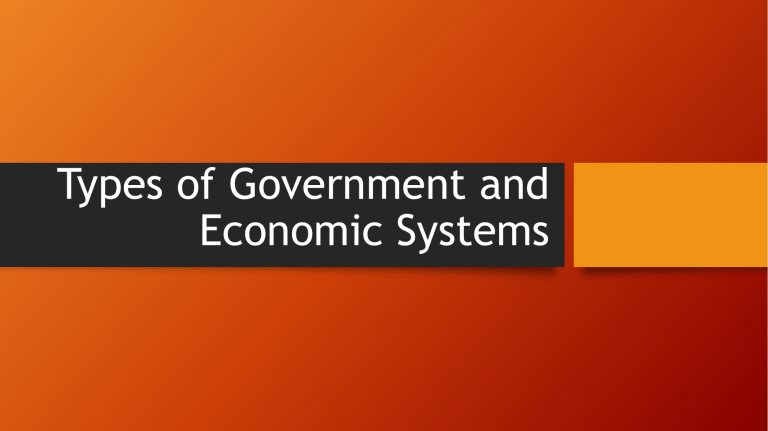
Types of Government and
Economic Systems
EQ: What is government?
• Government is a system of social control under which the right to make laws, and the right to enforce them, is given to a particular group in society.
• Government power can be held by one individual, a select few, or a majority.
• Modern government have many jobs, such as:
• Providing national security
• Keeping order
• Establishing a justice system
• Welfare services for those in need
• Regulating the economy
• Educational systems
What makes governments different from one another?
• We distinguish between forms of government on the basis of organizational structure and degree of control exercised over the society.
• Forms of government:
• Democracy
• Monarchy
• Theocracy
• Dictatorship
DEMOCRACY
• Power is given to the people and exercised by them directly or indirectly through a system of representation
• Democratic countries have free elections where all citizens have a vote.
• Examples:
• USA
• Phillippines
MONARCHY
• Rule by a single person (king/queen), who is the permanent head of state. Usually hereditary rulers, meaning rule is passed down from parent to child.
• Constitutional Monarchy – Powers of the King/Queen are restricted to those granted in their constitution.
• Parliamentary System – King/Queen have ceremonial duties, while Prime
Minister is the head of government.
• Examples:
• Great Britain (CM)
• Saudi Arabia
• Qatar
• Australia (CM)
THEOCRACY
• Government leaders are members of the clergy (church officials), and the legal system is based on religious law.
• Rulers are “divinely guided” (Chosen and lead by supreme being)
• Examples:
• The Vatican (Pope)
• Iran
DICTATORSHIP
• A single leader or party exercises absolute control over all citizens and most aspects of their lives.
• Often exercised through cruel means or intimidation
• Also known as, autocracy, Military Junta, Authoritarianism,
Totalitarianism, or Fascism.
• Examples:
• North Korea
• Sudan
• Nazi Germany (WWII)
Economic Systems
• What are economics?
• Production , distribution , and consumption of goods and services
• Economic Systems are often closely connected to governments
• Examples:
• Capitalism
• Socialism
• Communism
CAPITALISM
• Individuals and corporations are free to invest in and own all aspects of a business
• People own their own companies and can manage them to earn a profit (or mismanage them and lose money!)
SOCIALISM
• Political and Economic System in which businesses are controlled by the government rather than individuals
• People have equal rights to various benefits (health care, education, etc.), and there is an effort to limit the inequalities of wealth and power.
• Taxes are often high to provide these benefits
• People can hold private property
COMMUNISM
• Government controls all business
• Individuals cannot own property or industries.
• Communist countries have totalitarian governments
• All communists are socialists, but not all socialists are communists.
